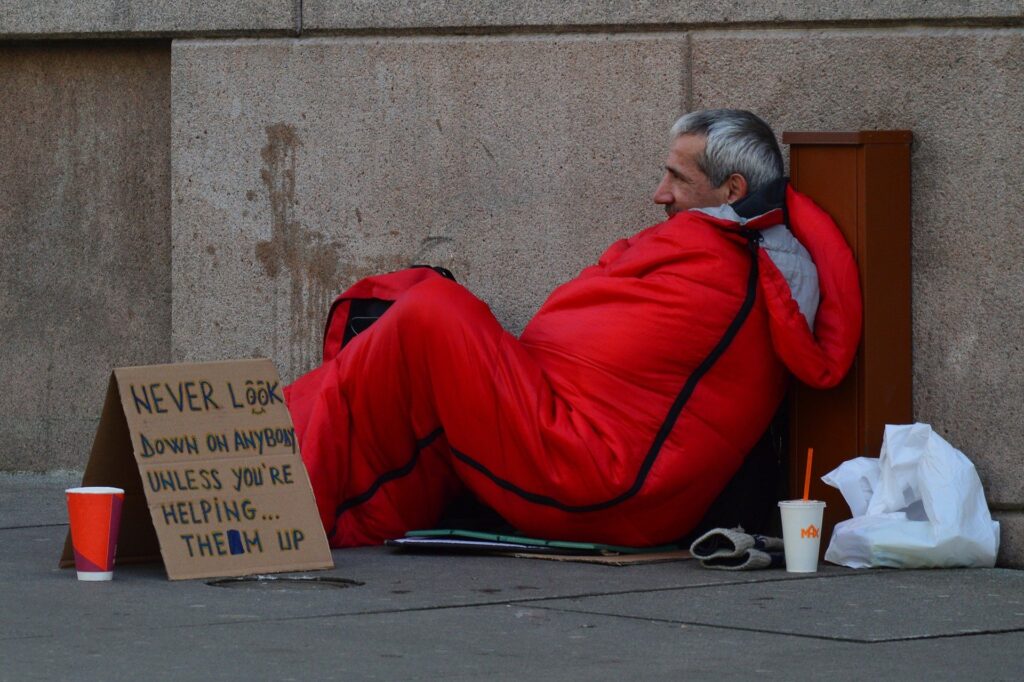The homeless are disproportionately exposed to high levels of air pollution, according to researchers at the International Journal of Environmental Research and Public Health.
As air quality worsens, most people have the option to stay indoors. However, for those without a home, often there is not a choice.
In an effort to understand how the homeless are affected by poor air quality, researchers at the University of Utah interviewed 138 people currently living in shelters around America, asking open-ended questions about when and how the air pollution makes them feel.
Over half of the participants reported physical reactions to air pollution, including headaches and breathing difficulties. More than a third reported experiencing emotional stress associated with poor air quality.
The research exposed that many homeless people sleep near a road, or even bridges leading to high levels of traffic emissions.
Researchers went on to compare the heart and lung health of those in and out of shelters. No significant difference was found.
‘The message for governmental leaders is that shelters and day centres that protect people from the elements may not be shielding them from air pollution and other environmental impacts, which can have a significant effect on their health,’
Angelina DeMarco, an anthropology doctoral student commented.
‘People experiencing unsheltered homelessness spend basic human functions outdoors, with close and regular interaction with the environment. The life lived outdoors makes homelessness an environmental justice issue,’ said Jeff Rose, assistant professor of the project.




